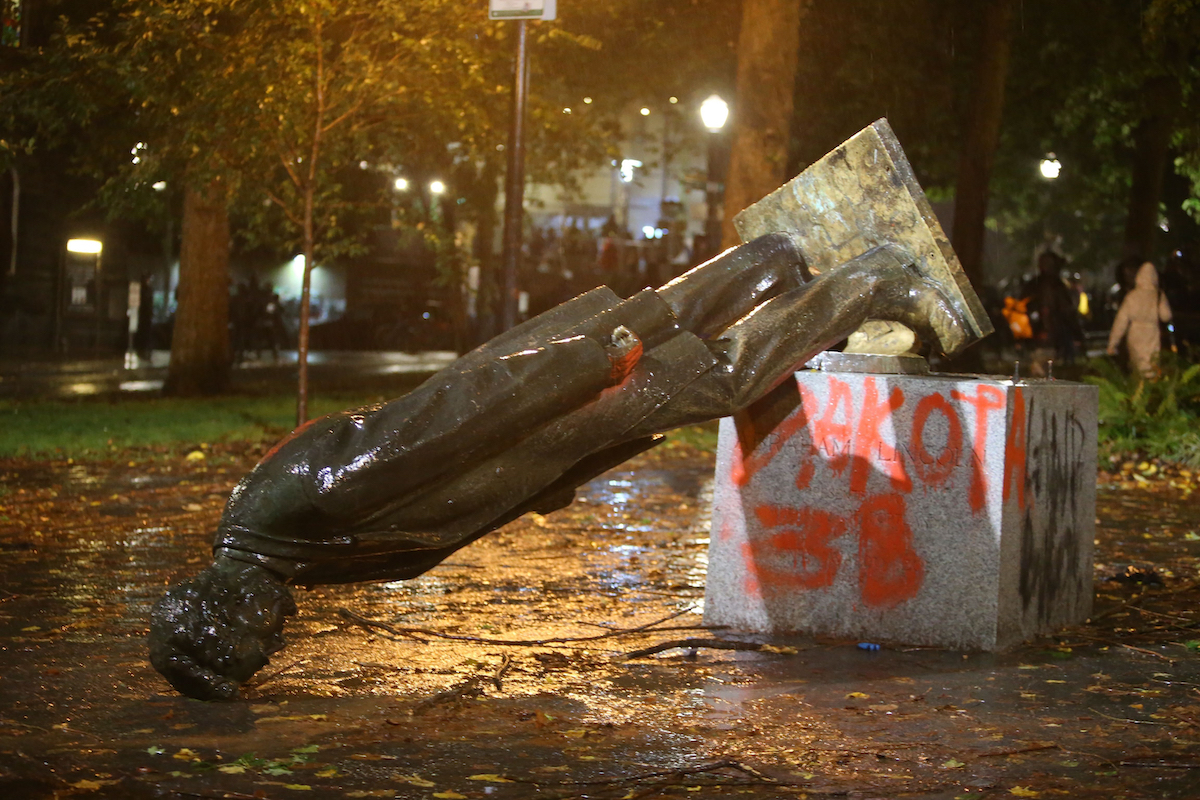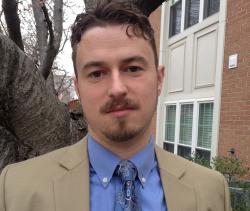It has become commonplace in America’s elite institutions to attack and delegitimize our forebears for various crimes, some of which are undoubtedly real, while others are more imagined and anachronistic. As for the former, we can cite the fact that many Americans—including some of our greatest heroes—were slave owners and exploiters of indigenous Americans. The latter—that they were proponents of an oppressive heteronormativity, for example—consist of allegations that would have baffled them.
Yet even in admitting that some of our ancestors perpetrated real evils against their fellow men, there is a certain simplemindedness in the trendy desire to defame every champion of Western civilization, from Abraham Lincoln to Shakespeare. This tribalism and attempt to see everyone as either victimizers or victims engenders guilt and grievance among many of America’s young, which undermines civic cohesion and promotes resentment. It’s also reductionist: Are our ancestors really to be evaluated primarily, if not solely, based on racial and gender “norms” that would have made little sense to them? And doesn’t judging them according to such norms constitute a failure to capture all that they were in their human complexity?
Perhaps this is what C.S. Lewis called chronological snobbery—the tendency to view ourselves as morally superior to our forebears and thus prohibit the full existence of their personhood to weigh upon us. This is something 20th-century French philosopher Gabriel Marcel hints at in his The Philosophy of Existence. Particularly in Marcel’s essay “On the Ontological Mystery,” we discover an unexpected repudiation of modernity’s aversion to its patrimony. But first we must understand Marcel’s indictment of modernity.
Marcel argues that modern man is subject to a variety of “-isms” that severely narrow his imaginative vision: utilitarianism, materialism, scientism. These -isms reflect a secular and scientific attempt to bring happiness and meaning to modern, deracinated man skeptical of traditional mores deemed oppressive and backward, and lead us to view our lives (and the world) through a professional and therapeutic lens. That lens subordinates everything in life to a technocratic careerism that promises we can maximize output and enjoy fulfilling careers as the highest fulfillment of self.
Marcel calls this a misplaced conception of function. He explains:
The individual tends to appear both to himself and to others as an agglomeration of functions. As a result of deep historical causes, which can as yet be understood only in part, he has been led to see himself more and more as a mere assemblage of functions.
Everything in life, including even our pleasure and our sleep, are carefully and clinically examined for the sake of function. In this schema, “it is logical that the weekly allowance of recreation should be determined by an expert on hygiene; recreation is a psycho-organic function which must not be neglected.” We see this with the technocratic class’s obsession with health, manifested in dietary crazes and exercise regimens: Pilates, yoga, Peloton.
While promising freedom, this mentality in fact limits us. “There is the dull, intolerable unease of the actor himself who is reduced to living as though he were in fact submerged by his functions… by an increasingly inhuman social order.” Every food we consume, every activity we perform, even our leisure seems to be carefully ordered to the utilitarian objective of maximizing our output, whatever that is. We are ever on the prowl for new “life hacks.”
And yet modern man feels a certain uneasiness, as if this secular, therapeutic conception of the good life is still missing something. Observes Marcel: “Life in a world centered on function is liable to despair because in reality this world is empty, it rings hollow.” In our obsessive control of every aspect of our lives, we make no room for mystery or transcendence.
What we have excluded, argues Marcel, is a personal detachment that facilitates human recollection and helps us perceive the inestimable value of the presence of another. “For it is in recollection and in this alone that this detachment is accomplished.” In short, we must withdraw from our world of function into an interior life to better understand both ourselves and others.
Herein lies a paradox: withdrawing into a solitary state of recollection actually facilitates the opposite of self-indulgent narcissism. Rather than viewing all our activities as having some sort of immediate utilitarian end (e.g., career success, personal health, the admiration of our peers), we appreciate that there is a transcendent, eternal quality to our lives. Explains Marcel:
To withdraw into oneself is not to be for oneself nor to mirror oneself in the intelligible unity of subject and object. On the contrary, I would say that here we come up against the paradox of that actual mystery whereby the I into which I withdraw ceases, for as much, to belong to itself. You are not your own—this great saying of St. Paul assumes in this connection its full concrete and ontological significance; it is the nearest approach to the reality for which we are groping.
In other words, in the act of withdrawal and reflection, we perceive ourselves more accurately and humbly as participating in something greater than ourselves. Rather than undermining our sense of self, this actually expands it and reinvigorates hope. “Speaking metaphysically, the only genuine hope is hope in what does not depend on ourselves.”
What does this have to do with chronological snobbery? One must remember that the woke historical revisionist project assumes contemporary man’s moral and technical superiority. Our functionally superior lives—no longer beholden to outdated religious beliefs, traditional conceptions of the family, or sexual mores, for example—grant us the authority (and power) to condemn the past. This project, ironically, fails to hear and experience the past as it truly was, “warts and all.”
Marcel’s particular construal of existentialism calls for something else: faithfulness in the one who seeks to make himself present. Faithfulness, says Marcel, is “the active recognition of something permanent, not formally, after the manner of a law, but ontologically; in this sense it refers invariably to a presence, or to something which can be maintained within us and before us as a presence.” And when it comes to those who are dead and gone, we are presented with a critical choice: Will we allow that person to be made present to us through the act of humble recollection, or through condescending, activist fervor? Will we allow that person to be present as a unique other, or only as the manifestation of some enemy of an identitarian cause that is our personal hobbyhorse?
Our predecessors are more than simply bit characters in our contemporary identitarian skirmishes. They are people who were present, however imperfectly, to their families, friends, and countrymen, and who wished to be made present to their descendants. And, except for those rare sociopathic cases, they yearned to be present because they wanted to love and be loved, and to communicate their deepest passions, even if inchoately and imperfectly. To treat them according to anachronistic judgments and norms is to subvert their very humanity. It is to repudiate Chesterton’s “democracy of the dead” and Burke’s social contract “between those who are dead, those who are living, and those who are to be born.”
To appreciate this reality requires in subjects a recognition that we are not our own. It also requires viewing our predecessors as offering a gift of themselves to us, who in turn must treat them with empathy and respect. Indeed, Marcel argues that it is in this dying to ourselves in hearing others—even those with whom we might disagree—that is “the starting point of its activity and creativeness.” This is true even for those whom we judge to have committed what we now see as gravely immoral acts—if we extinguish empathy, the dead become crude caricatures, and we assume we ourselves would have been incapable of those very same acts in that very same context.
We must allow those from our past to communicate themselves—their passions, their dreams, even their flaws and failings—to us in the present. This, says Marcel, is the work of charity. “Love obliterates the frontier between what is in me and what is outside of me, because the thing that is outside becomes a part of me.” That’s the most healthy (and conservative) way to interpret our past—as an intrinsic, indelible part of ourselves. If we try to violently extricate it like some sort of cancer, we discover we have damaged our own body-soul integrity (and that of our body politic), leaving us hollow and directionless. Only through an honest encounter with the past in its fullness can we have any confidence we are headed to a better country.

